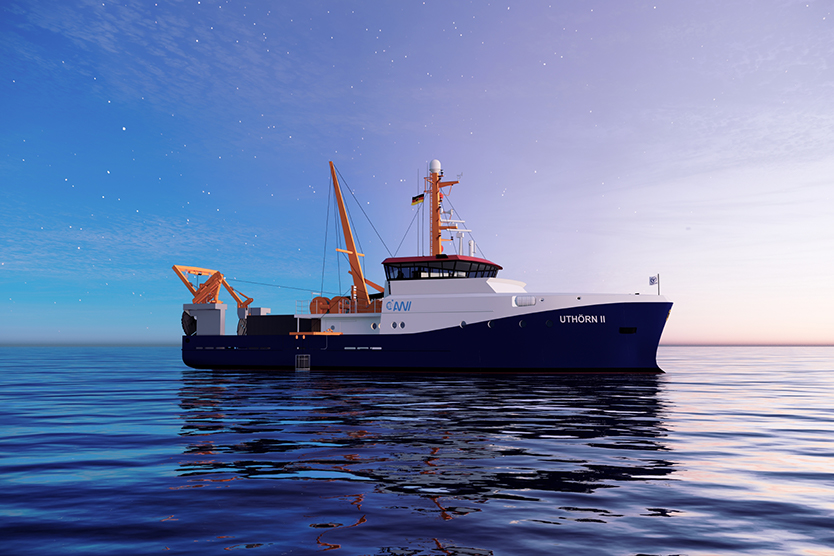
The research cutter Uthörn is Germany’s first ship that is equipped with a low-emission, methanol-fuelled propulsion system.
© Fr. Fassmer GmbH & Co. KG
The shipping industry, which contributes to 2.5 percent of all CO2 emissions worldwide as well as belching out sulphurous toxins, is under increasing pressure to clean up its act and stop using heavy diesel or “bunker” fuel. Amongst the alternative fuels that are being explored, “green methanol”, or methyl alcohol, offers a number of advantages.
Earlier this month, a new breed of ocean-going giant was launched onto the North Sea from the Fassmer shipyard in Berne, Lower Saxony. The 35-metre-long research cutter Uthörn, which is operated by the Alfred-Wegener-Institute/Helmholtz Centre for Polar and Marine Research (AWI), is unique because it happens to be Germany’s first ship that is equipped with a low-emission, methanol-fuelled propulsion system.
“When methyl alcohol is burnt, substantially fewer soot particles are released into the air than with gasoline, diesel or heavy fuel oil,” explains Dr Michael Klages, who is coordinating the project at AWI, in a press release. A further ecological advantage of the new fuel is that it dissolves easily in water, where it is broken down by bacteria, so that in the event of an accident, it doesn’t pose a major hazard to wildlife. “That being said, the fuel’s energy density, which is only half that of diesel, does pose a challenge,” says Klage. The new Uthörn will therefore be fitted with much larger fuel tanks.
Interestingly, the methanol used in the Uthörn flagship is produced in a pilot plant in Bremerhaven in a way that is fully carbon-neutral: the methanol is synthesised by combining CO2 produced from a nearby sewage plant with green hydrogen produced by electrolysis, which is powered by an 8 megawatt wind turbine. If the port of Bremerhaven could scale up its production of green methanol and green hydrogen, it could become one of the world’s first harbours to offer sustainable shipping fuel.


